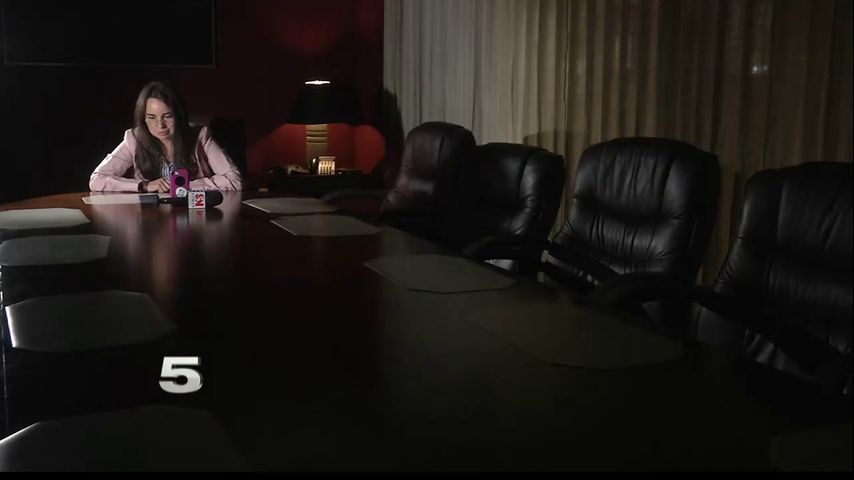Hesitant Records Release: A Look at the History of Protecting Sources
WESLACO – A probe into purchase orders for concert tickets bought with city funds led to a hesitant release of records by the City of Hidalgo. The request was met with a question that is not allowed under the Texas Public Information Act.
On Oct. 24, CHANNEL 5 NEWS sent a request to the City of Hidalgo for specific purchase orders.
Four days later, the city's finance director responded with a letter stating, in part:
"We are in process of obtaining this information, but the City of Hidalgo is requesting that you provide us information on how you were able to access our system files in order to request the specific PO Numbers in the request."
CHANNEL 5 NEWS responded explaining that the Texas Public Information Act restricts what they can ask regarding a public information request. The response included:
"Your request is a violation of the government state code 552. 222 (b) which states as follows:
If what information is requested is unclear to the governmental body, the governmental body may ask the requestor to clarify the request. If a large amount of information has been requested, the governmental body may discuss with the requestor how the scope of a request might be narrowed, but the governmental body may not inquire into the purpose for which information will be used.
The request inquiring information not pertinent to clarification, adjustment of scope or narrowing the request is outside of what the law provides."
Read the entire response here.
There's also laws that allow journalists to protect their sources. They're known as shield laws. In Texas, they were created in 2009 under then Governor Rick Perry.
There are times when journalists will protect their sources at all costs.
In the early 2000s, journalists Lance Williams and criminology professor Vanessa Leggett were investigating separate stories that caught national attention.
Lance Williams, a Senior Reporter at Reveal's Center for Investigative Reporting, recalls, "It involved the baseball home run king Barry Bonds and about 30 other elite athletes."
In Houston, Leggett was writing about a criminal case. Leggett, now an investigative journalist, says, "It was a murder-for-hire case, and I interviewed the trigger-man in the crime who died after our last interview, and I also interviewed the man who hired him."
Williams was reporting with another journalist, Mark Fainaru-Wada. Together, they found what wasn't common knowledge at the time – banned drug use among athletes. They obtained sealed court testimony where athletes admitted to using steroids.
"The government wanted to know who provided the documents to us, and we just couldn't tell them because they were provided by a confidential source. So, we got into some trouble," Williams says.
Leggett faced similar trouble after interviewing the trigger-man. She says, "The Justice Department came after me, ironically, not for those interviews, but for other interviews including interviews with law enforcement agents and prosecutors."
Both were asked to reveal sources and documents entrusted to them. At the time, the laws were different.
Currently in Texas, there are laws allowing journalists to protect the people who trust them with information. Melissa Wasser, a policy analyst with the Reporters Committee for Freedom of the Press, explained, "Texas has a really good shield law since 2009. It gives journalists a qualified privilege, so that means they are able to protect sources and the confidentiality of the sources that they work with in order to tell stories and serve the public's right to know."
Wasser says these protections are broad, but limits do exist.
"Because it's not an absolute privilege there are certain circumstances in which you may have to release that source, but it's not until they clear a high bar," Wasser explained.
Lance Williams and his reporting partner were sentenced to 18 months in prison. They didn't serve the time, because the source pleaded guilty to leaking the testimony.
Leggett spent 168 days in jail, even after she released information. She says, "I did not want to give it up, but I also understood that the right to effective law enforcement and justice superseded any right and would not really get in the way with my being able to disseminate it to the public or being a journalist. So, I gave that up but I did draw the line on my other sources."
Both say they stand by their decisions. Leggett says, "I think it's really imperative that we make it clear that we will protect our sources at all costs. I think that if any of us folds in that regard, it hurts journalism as a whole."
Williams stressed, "The voters are entitled to independent information about how their government is operating and that's what whistle-blowers provide."
Williams works now at Reveal focusing on money and politics. Leggett is working on the creation of shield laws at the federal level. She says they're working on legislation they plan to present to Congress.




